Lipids
How to submit an article:
- Registered users can submit any published journal article that has a unique DOI (Digital Object Identifier) name or link to Research Hub.
- For example, you can paste the full DOI link:
https://doi.org/10.1109/5.771073or just the DOI name:10.1109/5.771073into the field above and click submit. - The person who is first to submit a valid article to Research Hub will forever be credited for it, and every article submission earns you +6 Research Points.
Related Topics
Published research studies are articles that present the findings of original research that has undergone a peer-review process and has been made publicly available in scholarly journals, books or other media.
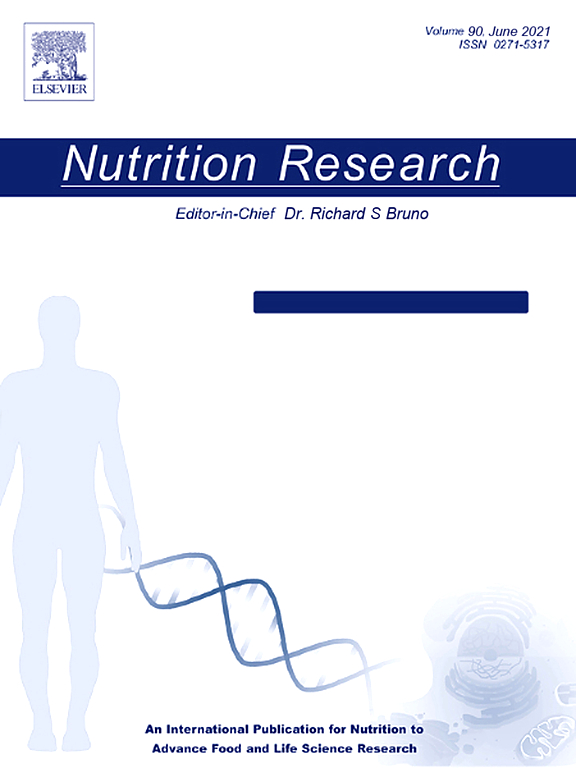
Pecan-enriched diet improves cholesterol profiles and enhances postprandial microvascular reactivity in older adults
2023 Mar Nutrition Research Cogan B, Pearson RC, Paton CM, Jenkins NT, Cooper JA
Daily consumption of 68 g of pecans for 4 weeks resulted in greater reductions in fasting total cholesterol, low-density lipoprotein (LDL) cholesterol, non-high-density lipoprotein cholesterol, LDL particle number, and LDL medium compared to a nut-free diet. Postprandial triglyceride levels were suppressed with pecan consumption, and improvements in microvascular reactivity were observed. Fasting macro- and microvascular function remained unaffected. The findings suggest that pecan consumption may contribute to improved vascular health and reduced cardiovascular risk in older adults.
Clinical Study Randomised Controlled Trial Cholesterol
Biomarkers of Metabolomics in Inflammatory Bowel Disease and Damp-Heat Syndrome: A Preliminary Study
2022 Jul 01 Evidence-Based Complementary and Alternative Medicine Wu X, Liu K, Wu Q, Wang M, Chen X, Li Y, et al.
In this study, we found that several metabolites of aromatic acids and lipid derivatives could act as potential biomarkers to discriminate IBD from healthy controls. Glycerophospholipids metabolites might be used to differentiate IBD-DH from IBD-SD.
Network Pharmacology Irritable Bowel Syndrome
Cooked Adzuki Bean Reduces High-Fat Diet-Induced Body Weight Gain, Ameliorates Inflammation, and Modulates Intestinal Homeostasis in Mice
2022 Jun 09 Frontiers in Nutrition Zhao Q, Liu Z, Zhu Y, Wang H, Dai Z, Yang X, et al.
Animal Study Metabolic Syndrome Obesity Anti-Inflammatory Fatty Liver Disease Gut Microbiota Adzuki BeanCooked adzuki beans contribute notably to preventing obesity and regulating gut microbiota composition, while also alleviating systemic inflammation and metabolic disorders.
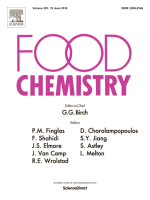
Phytochemistry, bioactivities and future prospects of mulberry leaves: A review
2022 Mar Food Chemistry Ma G, Chai X, Hou G, Zhao F, Meng Q
MLs and their extracts may be a promising treatment option for regulating glucose metabolism and lipid metabolism as well as anticancer effects. The dominant compounds responsible for the pharmacological effects of resisting oxidation, reducing blood sugar and lipids, resisting cancer and resisting inflammation in MLs include phenols, flavonoids, polysaccharides and alkaloids. Furthermore, ML suggests ability to inhibit multiple oxidase as well as anti-diabetic effects however more research is needed to yield stronger suggestions
Review Article Sang Ye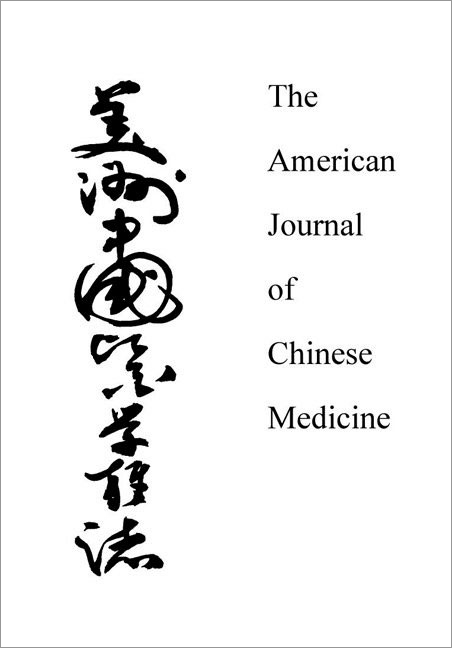
Antioxidant and Antiplatelet Effects of Dang-Gui-Shao-Yao-San on Human Blood Cells
2022 Jan The American Journal of Chinese Medicine Shen AY, Wang TS, Huang MH, Liao CH, Chen SJ, Lin CC
Antioxidant actions of DGSYS showed beneficial cytoprotective effects against lipid peroxidation in rat liver homogenate, human platelet aggregation induced by arachidonic acid (AA) and adenosine diphosphate (ADP) and mitomycin C-mediated hemolytic in human erythrocytes.
Dang Gui Shao Yao SanResearch insights are moderated by the Research Hub team and offer an at-a-glance overview of interesting research findings.

2022 Frontiers in Nutrition
Cooked adzuki beans contribute notably to preventing obesity and regulating gut microbiota composition, while also alleviating systemic inflammation and metabolic disorders.
Animal Study Adzuki Bean Anti-Inflammatory Fatty Liver Disease Gut Microbiota Metabolic Syndrome
Cooked Adzuki Bean Reduces High-Fat Diet-Induced Body Weight Gain, Ameliorates Inflammation, and Modulates Intestinal Homeostasis in Mice
Zhao Q, Liu Z, Zhu Y, Wang H, Dai Z, Yang X, et al.
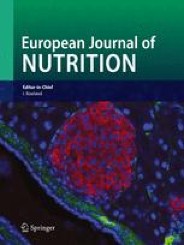
2022 European Journal of Nutrition
Oat supplementation interventions can improve cardiovascular health markers among adults, regardless of their diet or metabolic conditions.
Meta-Analysis Cardiovascular Disease Cholesterol Oats
Effect of oat supplementation interventions on cardiovascular disease risk markers: a systematic review and meta-analysis of randomized controlled trials
Llanaj E, Dejanovic GM, Valido E, Bano A, Gamba M, Kastrati L, et al.
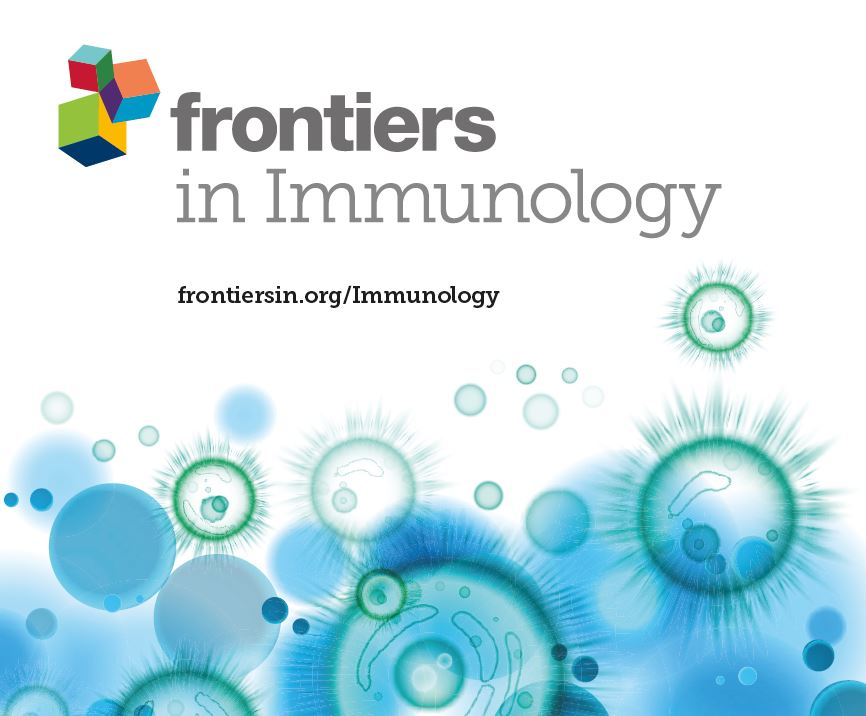
2021 Frontiers in Immunology
Consuming oats significantly lessens total and LDL cholesterol levels and mediates a prebiotic effect on the gut microbiome, contributing to its cholesterol-lowering ability.
Experimental Study Cholesterol Gut Microbiota Oats
The Prebiotic Effects of Oats on Blood Lipids, Gut Microbiota, and Short-Chain Fatty Acids in Mildly Hypercholesterolemic Subjects Compared With Rice: A Randomized, Controlled Trial
Xu D, Feng M, Chu YF, Wang S, Shete V, Tuohy KM, et al.

2021 Phytotherapy Research
Pomegranate extract supplement shows potential in improving glycemic indicators, serum lipids, anthropometrics, and blood pressure in patients with nonalcoholic fatty liver disease.
Randomised Controlled Trial Blood Sugar Cholesterol Diastolic Blood Pressure HDL-C Insulin Resistance
The effect of pomegranate extract on anthropometric indices, serum lipids, glycemic indicators, and blood pressure in patients with nonalcoholic fatty liver disease: A randomized double‐blind clinical trial
Goodarzi R, Jafarirad S, Mohammadtaghvaei N, Dastoorpoor M, Alavinejad P
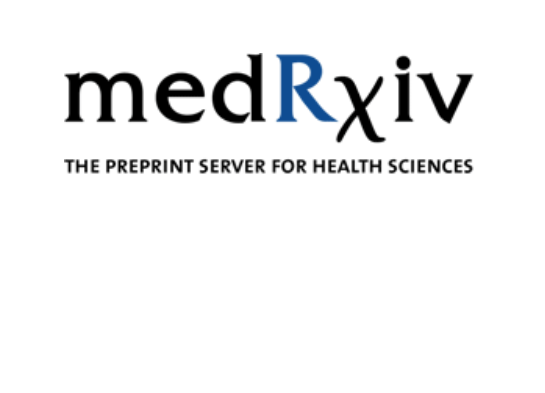
2021 medRxiv
The available evidence provides a good indication that nut consumption can result in a small improvement in blood pressure in adults.
Systematic Review
Dose-dependent effect of nuts on blood pressure: a systematic review and meta-analysis of randomized controlled trials
Ahmad Jayedi, Tauseef Ahmad Khan, Amin Mirrafiei, Bahareh Jabbarzadeh, Yasaman Hosseini, Sheida Motlagh, et al.
Review Articles
Review articles summarise and critically evaluate the current state of research on a specific topic or field by synthesising multiple primary research studies.

Phytochemistry, bioactivities and future prospects of mulberry leaves: A review
2022 Mar Food Chemistry Ma G, Chai X, Hou G, Zhao F, Meng Q
MLs and their extracts may be a promising treatment option for regulating glucose metabolism and lipid metabolism as well as anticancer effects. The dominant compounds responsible for the pharmacological effects of resisting oxidation, reducing blood sugar and lipids, resisting cancer and resisting inflammation in MLs include phenols, flavonoids, polysaccharides and alkaloids. Furthermore, ML suggests ability to inhibit multiple oxidase as well as anti-diabetic effects however more research is needed to yield stronger suggestions
Review Article Sang Ye
The Effects and Safety of Chinese Herbal Medicine on Blood Lipid Profiles in Placebo-Controlled Weight-Loss Trials: A Systematic Review and Meta-Analysis
2022 Jan 17 Evidence-Based Complementary and Alternative Medicine Wong AR, Yang AWH, Li M, Hung A, Gill H, Lenon GB
CHM may provide lipid-modulating benefits on triglycerides and HDL cholesterol among participants with overweight/obesity, with the tendency for significant triglyceride reduction observed among overweight participants with high baseline triglycerides.
Systematic Review Meta-Analysis Chinese Herbal Medicine
Effect of oat supplementation interventions on cardiovascular disease risk markers: a systematic review and meta-analysis of randomized controlled trials
2022 Jan 03 European Journal of Nutrition Llanaj E, Dejanovic GM, Valido E, Bano A, Gamba M, Kastrati L, et al.
Meta-Analysis Systematic Review Cholesterol Oats Cardiovascular DiseaseOat supplementation interventions can improve cardiovascular health markers among adults, regardless of their diet or metabolic conditions.

Dose-dependent effect of nuts on blood pressure: a systematic review and meta-analysis of randomized controlled trials
2021 May 23 medRxiv Ahmad Jayedi, Tauseef Ahmad Khan, Amin Mirrafiei, Bahareh Jabbarzadeh, Yasaman Hosseini, Sheida Motlagh, et al.
Systematic Review Meta-AnalysisThe available evidence provides a good indication that nut consumption can result in a small improvement in blood pressure in adults.

Effect of fenugreek supplementation on blood lipids and body weight: A systematic review and meta-analysis of randomized controlled trials
2021 Jan Journal of Ethnopharmacology Askarpour M, Alami F, Campbell MS, Venkatakrishnan K, Hadi A, Ghaedi E.
Systematic Review Meta-AnalysisFenugreek supplementation improved lipid parameters in adults.
Clinical Trials
Clinical trials are research studies that involve people and are conducted to evaluate the safety and efficacy of new treatments or interventions, such as drugs, medical devices, or behavioural therapies.

Pecan-enriched diet improves cholesterol profiles and enhances postprandial microvascular reactivity in older adults
2023 Mar Nutrition Research Cogan B, Pearson RC, Paton CM, Jenkins NT, Cooper JA
Daily consumption of 68 g of pecans for 4 weeks resulted in greater reductions in fasting total cholesterol, low-density lipoprotein (LDL) cholesterol, non-high-density lipoprotein cholesterol, LDL particle number, and LDL medium compared to a nut-free diet. Postprandial triglyceride levels were suppressed with pecan consumption, and improvements in microvascular reactivity were observed. Fasting macro- and microvascular function remained unaffected. The findings suggest that pecan consumption may contribute to improved vascular health and reduced cardiovascular risk in older adults.
Clinical Study Randomised Controlled Trial Cholesterol
The Prebiotic Effects of Oats on Blood Lipids, Gut Microbiota, and Short-Chain Fatty Acids in Mildly Hypercholesterolemic Subjects Compared With Rice: A Randomized, Controlled Trial
2021 Dec 09 Frontiers in Immunology Xu D, Feng M, Chu YF, Wang S, Shete V, Tuohy KM, et al.
Experimental Study Randomised Controlled Trial Oats Cholesterol Gut MicrobiotaConsuming oats significantly lessens total and LDL cholesterol levels and mediates a prebiotic effect on the gut microbiome, contributing to its cholesterol-lowering ability.

The effect of pomegranate extract on anthropometric indices, serum lipids, glycemic indicators, and blood pressure in patients with nonalcoholic fatty liver disease: A randomized double‐blind clinical trial
2021 Sep 08 Phytotherapy Research Goodarzi R, Jafarirad S, Mohammadtaghvaei N, Dastoorpoor M, Alavinejad P
Randomised Controlled Trial Obesity Pomegranate HDL-C Blood Sugar Triglyceride Insulin Resistance Cholesterol Diastolic Blood PressurePomegranate extract supplement shows potential in improving glycemic indicators, serum lipids, anthropometrics, and blood pressure in patients with nonalcoholic fatty liver disease.

A Randomized Placebo-Controlled Clinical Trial to Evaluate the Medium-Term Effects of Oat Fibers on Human Health: The Beta-Glucan Effects on Lipid Profile, Glycemia and inTestinal Health (BELT) Study
2020 Mar 03 Nutrients Cicero AFG, Fogacci F, Veronesi M, Strocchi E, Grandi E, Rizzoli E, et al.
Randomised Controlled Trial OatsDaily intake of 3 grams of oat beta-glucans significantly reduces LDL-Cholesterol, Total Cholesterol, and non-HDL-Cholesterol levels without impacting intestinal well-being or glucose levels.
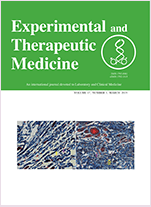
Effect of pomegranate juice consumption on biochemical parameters and complete blood count
2017 Jun 27 Experimental and Therapeutic Medicine Manthou E, Georgakouli K, Deli CK, Sotiropoulos A, Fatouros IG, Kouretas D, et al.
Randomised Controlled Trial Haemoglobin Red Blood Cell Count Iron Deficiency PomegranatePomegranate juice consumption over a short period promotes red blood cell production without significantly changing metabolic health and inflammation markers in healthy individuals.
Study Protocols
Published study protocols are detailed plans that outline the objectives, methodology, statistical analyses, and organisation of a research study that have been made publicly available for others to review and use as a reference.
Presentation Slides

Animal Study
Cooked adzuki beans contribute notably to preventing obesity and regulating gut microbiota composition, while also alleviating systemic inflammation and metabolic disorders.
Zhao Q, Liu Z, Zhu Y, Wang H, Dai Z, Yang X, Ren X, Xue Y, Shen Q

Meta-Analysis
Oat supplementation interventions can improve cardiovascular health markers among adults, regardless of their diet or metabolic conditions.
Llanaj E, Dejanovic GM, Valido E, Bano A, Gamba M, Kastrati L, Minder B, Stojic S, Voortman T, Marques-Vidal P, Stoyanov J, Metzger B, Glisic M, Kern H, Muka T

Experimental Study
Consuming oats significantly lessens total and LDL cholesterol levels and mediates a prebiotic effect on the gut microbiome, contributing to its cholesterol-lowering ability.
Xu D, Feng M, Chu YF, Wang S, Shete V, Tuohy KM, Liu F, Zhou X, Kamil A, Pan D, Liu H, Yang X, Yang C, Zhu B, Lv N, Xiong Q, Wang X, Sun J, Sun G, Yang Y

Randomised Controlled Trial
Pomegranate extract supplement shows potential in improving glycemic indicators, serum lipids, anthropometrics, and blood pressure in patients with nonalcoholic fatty liver disease.
Goodarzi R, Jafarirad S, Mohammadtaghvaei N, Dastoorpoor M, Alavinejad P

Systematic Review
The available evidence provides a good indication that nut consumption can result in a small improvement in blood pressure in adults.
Ahmad Jayedi, Tauseef Ahmad Khan, Amin Mirrafiei, Bahareh Jabbarzadeh, Yasaman Hosseini, Sheida Motlagh, Aliyu Tijani Jibril, Hossein Shahinfar, Sakineh Shab-Bidar
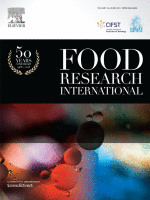
This review further put forward the possibility that cold-hot nature of food and Chinese medicine exert different biological effects on the inflammatory response via regulating the signaling pathways viz. NF-κB and MAPK.
Zhou Y, Xu B.

Systematic Review
Fenugreek supplementation improved lipid parameters in adults.
Askarpour M, Alami F, Campbell MS, Venkatakrishnan K, Hadi A, Ghaedi E.
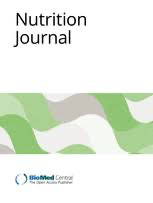
Systematic Review
The consumption of green tea significantly lowers low-density lipoprotein cholesterol and total cholesterol, but it does not affect high-density lipoprotein cholesterol or triglycerides.
Xu R, Yang K, Li S, Dai M, Chen G
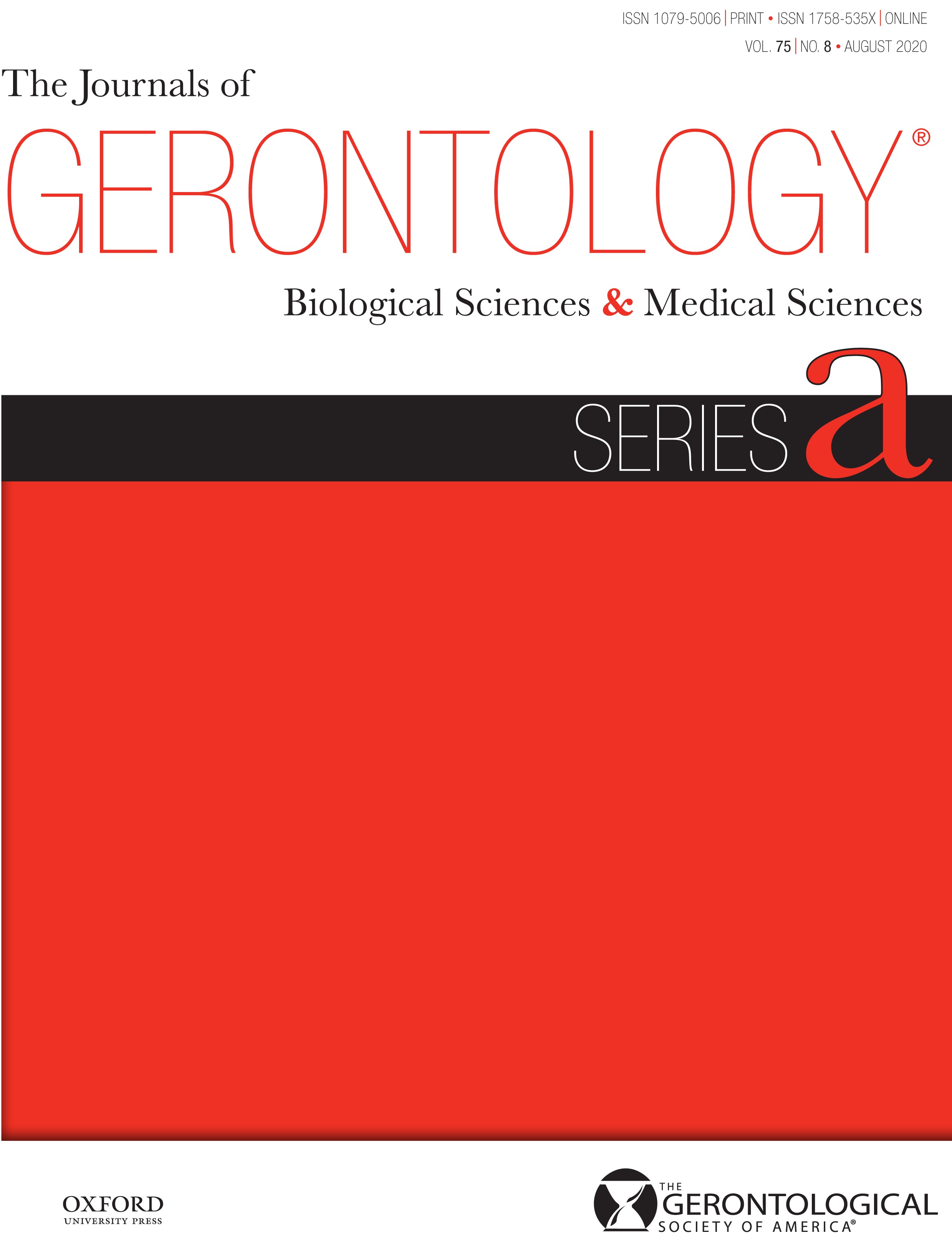
Cohort Study
Certain oxylipins, which are bioactive lipids derived from omega-6 and omega-3 polyunsaturated fatty acids, are potential key influencers in arthritis in older adults.
Coras R, Pedersen B, Narasimhan R, Brandy A, Mateo L, Prior-Español A, Kavanaugh A, Armando AM, Jain M, Quehenberger O, Martínez-Morillo M, Guma M

Randomised Controlled Trial
Daily intake of 3 grams of oat beta-glucans significantly reduces LDL-Cholesterol, Total Cholesterol, and non-HDL-Cholesterol levels without impacting intestinal well-being or glucose levels.
Cicero AFG, Fogacci F, Veronesi M, Strocchi E, Grandi E, Rizzoli E, Poli A, Marangoni F, Borghi C
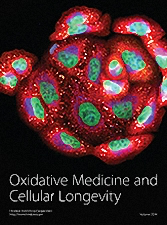
Systematic Review
The health benefits of goji berries include enhancing hemopoiesis, antiradiation, antiaging, anticancer, improvement of immunity, and antioxidation.
Zheng Feei Ma, Hongxia Zhang, Sue Siang Teh, Chee Woon Wang, Yutong Zhang, Frank Hayford, Liuyi Wang, Tong Ma, Zihan Dong, Yan Zhang, Yifan Zhu,

Systematic Review
Goji berries, rich in antioxidants, confer health benefits including protection against aging, cancer, and radiation, as well as enhancing immunity and blood production.
Zheng Feei Ma, Hongxia Zhang, Sue Siang Teh, Chee Woon Wang, Yutong Zhang, Frank Hayford, Liuyi Wang, Tong Ma, Zihan Dong, Yan Zhang, Yifan Zhu,

Experimental Study
Extract of pumpkin seeds displays estrogenic properties, potentially offering a solution to alleviate symptoms of menopausal syndromes resulting from estrogen deficiency.
Lestari B, Walidah Z, Utomo RY, Murwanti R, Meiyanto E
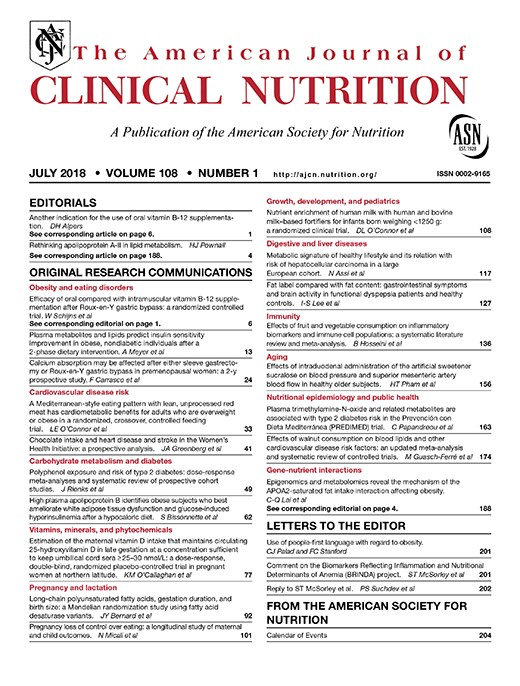
Systematic Review
Incorporating walnuts into the diet improved blood lipid profile without adversely affecting body weight or blood pressure.
Marta Guasch-Ferré, Jun Li, Frank B Hu, Jordi Salas-Salvadó, Deirdre K Tobias

Randomised Controlled Trial
Pomegranate juice consumption over a short period promotes red blood cell production without significantly changing metabolic health and inflammation markers in healthy individuals.
Manthou E, Georgakouli K, Deli CK, Sotiropoulos A, Fatouros IG, Kouretas D, Haroutounian S, Matthaiou C, Koutedakis Y, Jamurtas AZ

Experimental Study
Pomegranate polyphenols have notable antioxidant and antiatherogenic effects that lessen cholesterol, oxidized lipids accumulation, and atherosclerosis development in arterial macrophages.
Aviram M, Rosenblat M
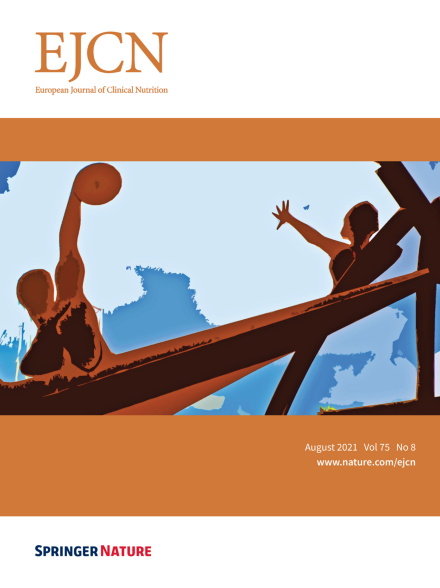
Meta-Analysis
Consumption of dark chocolate and cocoa products has been shown to significantly reduce serum levels of low-density lipoprotein (LDL) and total cholesterol (TC), indicating potential cardiovascular benefits.
Tokede OA, Gaziano JM, Djoussé L
Executive Summary
Write an executive summary in the form of a blog article on the topic of "Research into Chinese medicine treatment for Lipids" summarising the research below and using language that can be easily understood by patients and avoiding medical jargon using a professional and caring tone of voice.
Write an executive summary in the form of a blog article on the topic of "Researched Chinese medicine treatments for Lipids" summarising the research below in an objective and easy to understand way, and using language that can be easily understood by patients. Group the article into Chinese medicine treatments first, followed by nutrition and other treatments. Avoid using medical jargon and use a professional and caring tone of voice.
Write me a concise but easy to understand executive summary on the topic of "Chinese medicine treatments for Lipids" based on the following research that I will give you. Your summary should be 2 paragraphs long in Australian English spelling and include references to the studies.
A Animal Study published in 2022 in the journal Frontiers in Nutrition found that Cooked adzuki beans contribute notably to preventing obesity and regulating gut microbiota composition, while also alleviating systemic inflammation and metabolic disorders. The methodology involved a controlled experiment where mice were fed diets of varying lipid content: a low-fat diet or a high-fat diet. The specific twist in this experiment was the inclusion or exclusion of cooked adzuki beans to their diet, ensuring 15% of the diet comprised of this. The duration of this dietary regimen was 12 weeks. In the discussion of results, it was discovered that cooked adzuki beans provided key beneficial effects. This included a significant inhibition of weight gain and hepatic steatosis, a reduction in high levels of specific markers such as serum triacylglycerol, alanine aminotransferase, and aspartate aminotransferase, providing a counter to systemic inflammation and metabolism-related endotoxemia commonly found in those consuming a high-fat diet. Moreover, the inclusion of adzuki beans positively affected the gut microbiota composition, reducing fat-inducing bacteria and enriching the gut with beneficial bacteria to help alleviate inflammation and metabolic disorders associated with high-fat diets.
A Meta-Analysis published in 2022 in the journal European Journal of Nutrition found that Oat supplementation interventions can improve cardiovascular health markers among adults, regardless of their diet or metabolic conditions. The methodology involved analyzing various randomized clinical trials that tested how oats, or extracts rich in oat beta-glucan and avenanthramides affected markers of cardiovascular disease risk. The sample population was predominantly subjects with high cholesterol, obesity, and mild metabolic disturbances. Interventions were compared to control arms without oats. In the discussion on results, it was found that subjects receiving the oat supplementation had improved health metrics such as total cholesterol, LDL cholesterol, glucose levels, body mass index, weight, and waist circumference. However, when the oat supplementation was compared to heterogeneous interventions, like wheat, eggs, rice, etc., reductions in the levels of glycated haemoglobin, diastolic blood pressure, HDL cholesterol, and apolipoprotein B were also seen. Despite these promising results, there were some concerns around the bias risk associated with the majority of included randomized clinical trials.
A Experimental Study published in 2021 in the journal Frontiers in Immunology found that Consuming oats significantly lessens total and LDL cholesterol levels and mediates a prebiotic effect on the gut microbiome, contributing to its cholesterol-lowering ability. In a randomized controlled study, 210 mildly hypercholesterolemic subjects from three various study centers across China were assigned to consume either 80 g of oats or rice daily for 45 days. To ascertain the effects of these diets, measurements were taken of the participants' plasma lipid profiles, short chain fatty acids (SCFAs), and fecal microbiota. Following 30 and 45 days of adherence to these diets, there was a pronounced reduction in total cholesterol (TC) and non-high-density lipoprotein cholesterol (non-HDL-C) in both the oat-consuming and rice-consuming participants. This decrease was more articulated amongst the oat consumers by the 45th day. The consumption of oats led to a significant increase in the abundance of certain beneficial gut microbiota and a corresponding decrease in unclassified harmful types. These microbiota demonstrated associations with changes in plasma lipid levels and SCFAs. The comprehensive findings strongly suggest that the cholesterol-reducing effect of oats may be largely down to its prebiotic activity, which modulates the gut microbiome.
A Randomised Controlled Trial published in 2021 in the journal Phytotherapy Research found that Pomegranate extract supplement shows potential in improving glycemic indicators, serum lipids, anthropometrics, and blood pressure in patients with nonalcoholic fatty liver disease. The study involved 44 patients who had been diagnosed with nonalcoholic fatty liver disease. These individuals were randomly assigned to two groups, with one group receiving two pomegranate extract tablets daily over a period of 12 weeks, and the other a placebo. The researchers measured anthropometric values, serum lipid levels, blood pressure, and glycemic indicators before and after the intervention. In their analysis of the outcomes, the researchers found that the group which received the pomegranate extract showed reductions in total cholesterol, triglyceride levels, the ratio of low-density lipoprotein cholesterol to high-density lipoprotein cholesterol, fasting blood sugar, resistance to insulin, diastolic blood pressure, weight, body mass index, and waist circumference when compared to the placebo group. Additionally, an increase in serum high-density lipoprotein cholesterol was observed within the pomegranate group, indicating the potential utility of this supplement in a treatment regimen for this condition.
A Systematic Review published in 2021 in the journal medRxiv found that The available evidence provides a good indication that nut consumption can result in a small improvement in blood pressure in adults. A total of 31 RCTs with 2784 participants were included. Each 20 g/d increase in nut consumption reduced systolic blood pressure and diastolic blood pressure. The effect of nuts on systolic blood pressure was more evident in patients with type 2 diabetes. The results were robust in the subgroup of trials with low risk of bias. Levels of systolic blood pressure decreased proportionally with the increase in nuts consumption up to 40 g/d, and then appeared to plateau with a slight upward curve. A linear dose-dependent reduction was seen for diastolic blood pressure, with the greatest reduction at 80 g/d. The available evidence provides a good indication that nut consumption can result in a small improvement in blood pressure in adults. Well-designed trials are needed to confirm the findings in long term follow-up.
A published in 2021 in the journal Food Research International found that This review further put forward the possibility that cold-hot nature of food and Chinese medicine exert different biological effects on the inflammatory response via regulating the signaling pathways viz. NF-κB and MAPK. This review explored that the cold and hot natures are not only linked to the chemical components such as water, carbohydrates, lipids, and amino acids, but also correlated to the biological effects, comprising of energy metabolism, inflammation response, oxidation reaction, immune response, and cell growth and proliferation. Besides, this review further put forward the possibility that cold-hot nature of food and Chinese medicine exert different biological effects on the inflammatory response via regulating the signaling pathways viz. NF-κB and MAPK. More extensive studies are needed to consider the overall connections between both the biological effects and chemical components and how food processing affects the cold-hot nature of the food.
A Systematic Review published in 2021 in the journal Journal of Ethnopharmacology found that Fenugreek supplementation improved lipid parameters in adults. A meta-analysis of 12 RCTs (14 arms) with 560 participants suggested a significant decrease in plasma concentrations of total cholesterol, triglycerides, and low density lipoprotein cholesterol, as well as an increase in plasma high density lipoprotein cholesterol, while body weight and body mass index were not altered.
A Systematic Review published in 2020 in the journal Nutrition Journal found that The consumption of green tea significantly lowers low-density lipoprotein cholesterol and total cholesterol, but it does not affect high-density lipoprotein cholesterol or triglycerides. To gather data for this study, a comprehensive literature review and meta-analysis were conducted using PubMed, Embase, and the Cochrane Library. The databases were searched from their inception to September 2019 for all studies related to the effect of green tea on blood lipids. Information from these studies, which included randomized and controlled trials, was used to estimate blood lipid changes resulting from green tea supplementation. The collected information underwent rigorous assessment for any potential bias. The analysis of data derived from 31 different trials involving a total of 3321 subjects showed that green tea intake has a significant effect in lowering low-density lipoprotein cholesterol and total cholesterol levels. However, consumption of green tea did not yield significant changes in the levels of high-density lipoprotein cholesterol or triglycerides. The results remained consistent across both normal-weight and overweight-obese subjects. No significant publication bias was detected from the collected studies, fortifying the reliability of the results.
A Cohort Study published in 2020 in the journal The Journals of Gerontology: Series A found that Certain oxylipins, which are bioactive lipids derived from omega-6 and omega-3 polyunsaturated fatty acids, are potential key influencers in arthritis in older adults. The research method involved an observational prospective study of 64 patients over the age of 60 with newly diagnosed arthritis, which was categorized as Elderly-onset rheumatoid arthritis and polymyalgia rheumatica. Patients' blood samples were taken at the start of the study and 3 months post-treatment, with results compared to 18 control samples. A thorough clinical examination was conducted for each patient. Serum oxylipins (bioactive lipids derived from omega-6 and omega-3 polyunsaturated fatty acids) were determined through mass spectrometry, and data analysis was performed. In the discussion, it was found that the levels of certain oxylipin species were significantly different between control subjects and arthritis patients. Interestingly, the ratio of omega-3 to omega-6 polyunsaturated fatty acids was significantly downregulated in elderly-onset rheumatoid arthritis patients compared to controls. Two oxylipins, namely hydroxydocosahexaenoic acid and dihydroxy-eicosatrienoic acid, were identified as top candidates for differentiating polymyalgia rheumatica from elderly-onset rheumatoid arthritis. Following treatment, the levels of omega-3 derived anti-inflammatory species increased in elderly-onset rheumatoid arthritis patients.
A Randomised Controlled Trial published in 2020 in the journal Nutrients found that Daily intake of 3 grams of oat beta-glucans significantly reduces LDL-Cholesterol, Total Cholesterol, and non-HDL-Cholesterol levels without impacting intestinal well-being or glucose levels. The BELT Study was a double-blind, placebo-controlled, cross-over randomized clinical trial conducted over 8 weeks. It involved 83 Italian subjects with moderate hypercholesterolemia, who had low cardiovascular risk and followed a Mediterranean diet. The participants were administered either 3g/day of oat beta-glucans or a placebo. The results indicated that beta-glucans significantly reduced LDL-C, TC, and non-HDL-C levels in participants from both the baseline and the 4 and 8-week marks. However, no notable impact was observed on fasting plasma glucose or self-perceived intestinal well-being. These outcomes remained consistent irrespective of whether the subjects were given the beta-glucans or the placebo.
A Systematic Review published in 2019 in the journal Oxidative Medicine and Cellular Longevity found that The health benefits of goji berries include enhancing hemopoiesis, antiradiation, antiaging, anticancer, improvement of immunity, and antioxidation. Goji berries are a high antioxidant potential fruits which alleviate oxidative stress to confer many health protective benefits such as preventing free radicals from damaging DNA, lipids, and proteins. There is a better protection through synergistic and additive effects in fruits and herbal products from a complex mixture of phytochemicals than from a single phytochemical. The health benefits of goji berries include enhancing hemopoiesis, antiradiation, antiaging, anticancer, improvement of immunity, and antioxidation.
A Systematic Review published in 2019 in the journal Oxidative Medicine and Cellular Longevity found that Goji berries, rich in antioxidants, confer health benefits including protection against aging, cancer, and radiation, as well as enhancing immunity and blood production. The methodology of the study focused on a thorough review of the bioactive compounds and pharmacological properties of goji berries, particularly targeting their molecular mechanisms of action. This involved looking at the different ways these fruits are consumed, such as in soups, herbal teas, tinctures, wine, and juice, and how these methods influence the antioxidants present in the fruits. Goji berries were found to offer a range of health benefits due to their ability to alleviate oxidative stress. These benefits include enhancing hemopoiesis (blood formation), offering antiradiation and antiaging properties, inhibiting cancer, improving immunity, and providing antioxidation. Furthermore, the study emphasized that the complex mixture of phytochemicals found in fruits and herbal products like goji berries provide a cumulative protective effect, which proves more beneficial compared to extracting and using one single phytochemical.
A Experimental Study published in 2019 in the journal Phytotherapy Research found that Extract of pumpkin seeds displays estrogenic properties, potentially offering a solution to alleviate symptoms of menopausal syndromes resulting from estrogen deficiency. In the study, scientists conduct in vitro analysis using a colorimetric-based assay on kidney cells derived from Chinese hamsters. Furthermore, they perform in vivo experiments involving 7-week old female rats that were specially prepared to model menopausal conditions. These rats are split into differing groups, each receiving a different dosage of pumpkin seed extract. Other observable parameters include uterine weight, condition of mammary glands, serum lipid levels, and bone density measured after a period of 30 days. The researchers also utilize a computer-based technique called molecular docking to investigate how certain active compounds in the pumpkin seed extract respond to estrogen receptors. Separately, this study indicates the pumpkin seed extract's positive impact on uterine weight and mammary gland health in rats, demonstrating properties similar to the hormone 17β-estradiol. Additionally, consumption of the extract led to improved lipid profile - with increased levels of good cholesterol and decreased bad cholesterol- and improved bone density. The study suggests that these beneficial results align with the growth of bone-building cells and decrease in bone-resorbing cells. The digital validation confirms the strength of interactions between active compounds found in the extract and the estrogen receptors.
A Systematic Review published in 2018 in the journal The American Journal of Clinical Nutrition found that Incorporating walnuts into the diet improved blood lipid profile without adversely affecting body weight or blood pressure. The present meta-analysis of controlled trials provides robust evidence for the benefits of walnut consumption on blood lipids without adversely affecting body weight or blood pressure and supports the results of epidemiologic studies showing inverse associations between walnut consumption and CVD risk. Despite walnuts being energy-dense, the consumption of walnuts does not promote weight gain and thus they can be incorporated into an overall healthy dietary pattern to enhance health benefits.
A Randomised Controlled Trial published in 2017 in the journal Experimental and Therapeutic Medicine found that Pomegranate juice consumption over a short period promotes red blood cell production without significantly changing metabolic health and inflammation markers in healthy individuals. In the methodology of this study, ten healthy subjects (five males and five females averaging 31.8 years of age and weighing an average of 66.2 kg) were split into two groups. One group drank 500 ml of pomegranate juice every day for 14 days, while the other did not. Blood samples were taken from the subjects before and after the experimental period to measure various health markers. In the discussion of results, it was observed that pomegranate juice intake led to a substantial rise in red blood cell count, hemoglobin levels, and hematocrit levels. However, other complete blood count parameters, and levels of glucose, cholesterol, triglycerides, high-density lipoprotein, low-density lipoprotein, and C-reactive protein remained largely unaffected after the juice consumption. This suggests that pomegranate juice only had a substantial effect on increasing erythropoiesis or decreasing degradation in healthy individuals.
A Experimental Study published in 2012 in the journal Evidence-Based Complementary and Alternative Medicine found that Pomegranate polyphenols have notable antioxidant and antiatherogenic effects that lessen cholesterol, oxidized lipids accumulation, and atherosclerosis development in arterial macrophages. The research utilizes both in vitro and in vivo human and mouse models to explore the impact of pomegranate polyphenols. Specifically, the study investigates its effects on serum lipoproteins and arterial macrophages, two major components of atherosclerotic lesions. The study administers pomegranate juice and its by-products to the models for observational testing. The results indicate that pomegranate polyphenols significantly curtailed the accumulation of cholesterol and oxidized lipids in macrophages, as well as the formation of foam cells, a key factor in early atherogenesis. Consequently, this led to the deceleration of atherosclerosis development and its associated cardiovascular events. This suggests the potentially potent antioxidant and antiatherogenic properties of pomegranate polyphenols and their beneficial effects on cardiovascular health.
A Meta-Analysis published in 2011 in the journal European Journal of Clinical Nutrition found that Consumption of dark chocolate and cocoa products has been shown to significantly reduce serum levels of low-density lipoprotein (LDL) and total cholesterol (TC), indicating potential cardiovascular benefits. The research aimed to investigate the impact of dark chocolate and cocoa product consumption on lipid profiles, particularly focusing on LDL, TC, high-density lipoprotein (HDL), and triglycerides (TG). A thorough literature search identified 10 clinical trials involving 320 participants, with intervention durations ranging from 2 to 12 weeks. The analysis revealed a significant reduction in both LDL (difference in means: -5.90 mg/dl) and TC (difference in means: -6.23 mg/dl) levels following the consumption of dark chocolate or cocoa products. However, no statistically significant effects were observed for HDL and TG. These findings suggest short-term beneficial effects on total and LDL cholesterol with no major impact on HDL and TG.
Moderation Tools
Topic
Sign In
Users not signed in are limited to viewing the 5 most recent items of content.